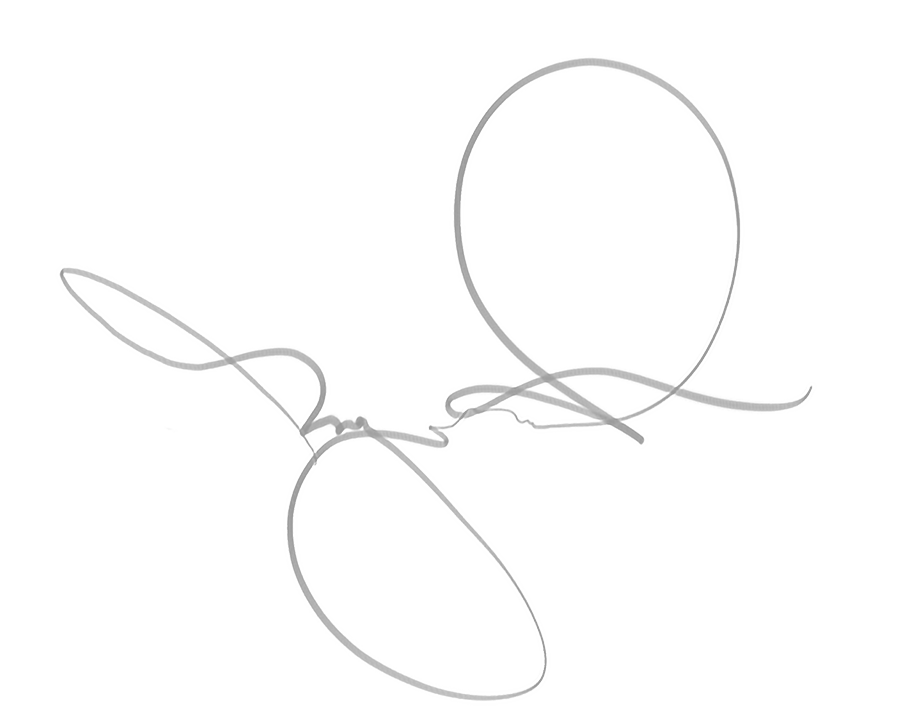I am partial to the way Elizabeth Gilbert explains creativity. I find it useful, beautiful, and sane-making to picture creative genius outside of us; a muse that demands our intense work, but which is out of our control.
Loving Gilbert's idea about creativity (and in my more mercurial moments, employing it), I can't make myself really believe it. I'm stuck thinking creativity is inside us and, working under this understanding, I formed a hypothesis that creativity is accessed through the way we organize thoughts. Here is my thinking.
Recently, at a moment when my mind was completely at ease, two words floated through it: Nermal dermal. I stopped my stream of consciousness for a moment to focus on the two words because they had no overt connection to anything that had been running through my mind and I wanted to know how they got there. Also, they were stupid, nonsensical, and trying to fly under the radar: they whispered behind a now-forgotten image that had been occupying most of my attention, but which was totally separate from them. How did they get there?
I remembered easily that Nermal was the annoying cat character on Garfield, but I hadn't watched Garfield in 20 years and even then I didn't watch often. The name should have been completely lost to me and my terrible memory, especially poorly suited for proper nouns. Nermal sounded like its successor, "dermal," however, and I was in the shower. Maybe the shower environment had reminded me of a Dove bodywash commercial about skin? I reasoned that the words rhymed and they came together because of my immediate physical environment. It was boring and logical, but startling to learn that Nermal and its definition were still in my brain; equally so that the word was reconstituted by sound. Had anyone asked me to name that minor animated character, or even to remember the cat existed, I couldn't have pulled up the memory. It was forgotten.
A great professor and friend of mine said, that "design is the act of forgetting." He was quoting ([Alvar Aalto? Pietla?] I forget; we were in Finland) and and I had no idea what he meant. I remember that quote only because I replied that I had a terrible memory and he told me it must be why I was a good designer. My embarrassed pride at his response situated the quote firmly in my mind under: What to remember when you feel like a louse (Coincidentally, I stole the phrase "feeling like a louse" from another great professor and friend -married to the first- who is honest, funny, and biting in her rhetoric. Those two are the best).
A conversation in Finland between my husband, two fantastic professors, and their baby girl.
Examining the reconstitution of "Nermal," I thought I might understand the quote about design and forgetting a little better. If Simonides, Arthur Conan Doyle and the Grandmasters of Memory are correct that to remember well is to organize memories well, whether through mind-palaces or elaborative encoding, then to forget might not be to lose information, but only to keep it disorganized. Design, or to change the quote, Creativity, might be built on a foundation of ideas that are collected, but disorganized - forgotten - and accessed in surprising, different, insightful ways. A rhizome of ideas and facts and experiences.
Maybe the reason creativity seems so fleeting is that we are at complete ease when we are most receptive to it, not engaged in the act of memorizing (organizing) and so thoughts are more likely to dissolve back into the forgotten ether if we cannot shift our mode of thinking and grab a pen fast enough. Creativity, then, is about forgetting and remembering, organizing and disorganizing, and moving between those two states as quickly and smoothly as possible.
The important realization to me wasn't really understanding how creativity works, though. Lots of people have come to compelling conclusions on that topic (Maria Popova writes about the subject to beautiful ends on BrainPickings). It was more important to me to think about how forgetting works. I especially like the idea that forgetful living might be a useful way to live, with its own set of benefits. I've learned tactics to improve my memory, but it remains atrocious and, in darker moments I imagine my elderly self with a void where a richly remembered life should have been. The thought that memories are within us forgetful folk, and simply disorganized, is a much nicer prospect. It means it might be fine to walk through life trusting that interesting, strangely linked, creativity-inspiring memories will emerge; kicked up like leaves on a walk through the woods.
- A large part of my knowledge of how memory works comes from an interview with Joshua Foer about his book, Moonwalking with Einstein: The Art and Science of Remembering Everything. My book on memory will be called Slipping in the Shower: The Art and Science of Forgetting Everything Except Useless Cat Names.
- In Google-searching the quote "design is the act of forgetting," I found a Fast Company article on research by psychologists Benjamin Storm and Trisha Patel of UC-Santa Cruz, who study creativity and forgetfulness. They say:
"The results of the present research suggest that thinking and forgetting are intrinsically connected—that to think of new ideas can cause the forgetting of old ideas, and that such forgetting may play an essential role in promoting the ability to think creatively," Storm and Patel, Journal of Experimental Psychology: Learning, Memory, and Cognition.
